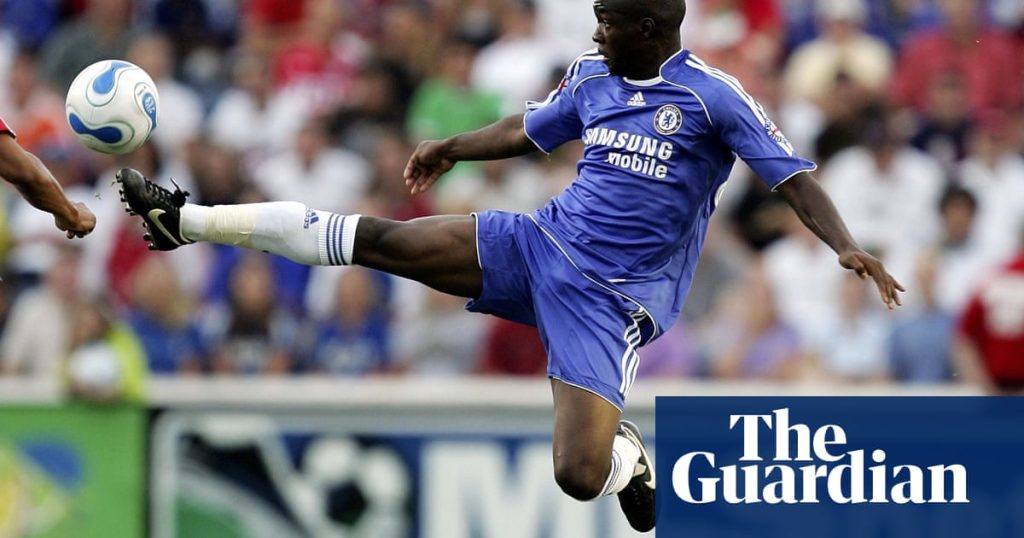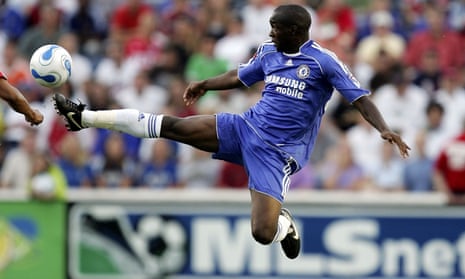The Lassana Diarra case: what is it and will it change football like Bosman?


The Lassana Diarra case: what is it and will it change football like Bosman?
A court verdict could lead to players walking out on contracts without their clubs being compensated
What is happening?
The court of justice of the European Union (CJEU) will deliver a verdict on Friday in the case of Fifa v the player “BZ” – AKA the former Chelsea, Arsenal and Portsmouth midfielder Lassana Diarra. It concerns the functioning of the transfer market and the verdict could throw a stick of dynamite under the system.
Update: the CJEU has ruled that Fifa’s transfer rules go against EU laws – read the story here and follow developments on our live blog.
Why is it happening?
In the summer of 2014 Diarra was playing for Lokomotiv Moscow. The France international was in dispute with the club over his salary. The club decided this amounted to a breach of contract and terminated it. They then took Diarra to Fifa’s dispute and resolution chamber, seeking damages. Despite a counterclaim from Diarra, the DRC found in Lokomotiv’s favour and fined the player €10.5m. At the same time, Diarra received an offer of a contract from the Belgian club Charleroi. It came with a condition, however: Charleroi wanted confirmation from Fifa that Diarra would be able to move and that his new club would not be liable for any of the costs owed to Lokomotiv. Fifa did not give those guarantees, with its rules mandating that an international transfer certificate must be granted by the league a player is leaving before any deal could take place. With no moneys having been paid to Lokomotiv that permit was not forthcoming. As a result, in December 2015, Diarra brought legal action against Fifa and the Belgian football league, claiming a loss of earnings and starting a long process that has led to this week’s judgment.
What is at the heart of the case?
Diarra’s lawsuit is still going through the Belgian courts, but was passed by its appeals court to the CJEU for its opinion on how it related to two key tenets of EU law: the right to freedom of movement for individuals and the preservation of competition within internal markets. This year, a legal opinion was issued by the CJEU advocate general, Maciej Szpunar, on this topic, an opinion that will guide the court’s thinking. In Szpunar’s assessment, the key questions were as follows: did Fifa, as football’s governing authority, act against Diarra’s rights to freedom of movement when he was denied authorisation to join Charleroi? Does the obligation placed on a buying club to cover costs of a player’s departure from their previous club affect their ability to trade? And do Fifa’s transfer rules achieve such outcomes by their very design? In all three cases, Szpunar argued the answer was yes. If the court decides the same, then there are clear structural challenges to the very nature of the transfer system. It should be noted that Szpunar did observe that the rules as they stand “generally seem likely to promote contractual stability” and contribute to “balance” in sporting competitions “by preserving a degree of equality of opportunity”.
What are the possible outcomes?
One option remains that the court finds in favour of Fifa and everything stays the same. The opposite end of the scale would have the court deciding that a player should be able to walk away from a contract without it affecting their ability to find a new club or imposing any costs on that new club. There are also numerous outcomes in between, most of which would involve a technical or legal fix to the current system. For example – a burden of proof being required to show that a buying club was party to a player breaching contract without “just cause”.

What could be the consequences?
A decision against Fifa’s rules would fundamentally shift the bargaining power in transfer and contract negotiations away from clubs and towards players (and their agents). It would lead to more broken contracts and greater uncertainty over transfer fees. It would probably necessitate the creation of a new body to determine what compensation, if any, a club was owed (and by whom) in the event that a player walked out.
The knock-on effects could be huge. For many clubs in Europe, transfer dealing is a vital means of keeping their heads above water. A ruling against Fifa would act against that and, probably, in favour of bigger clubs who could persuade players to quit their contracts in a way that is not possible now. On the other hand, the kind of trading models that underpin multi-club ownership groups would also become more uncertain, with clubs effectively losing control of career paths.
So will this be Bosman part two?
It depends which way you look at it. The Bosman ruling, in 1995, pertained to every player and their ability to freely leave a club at the end of their contract. Not every player might want to take up the option of breaking their contract, meanwhile, but a ruling against Fifa would mean a player could quit their club at any point in their contract. It’s also not a guarantee the court will agree with the advocate general’s argument or hold to it fully. On top of that, as is often the case, this ruling will not be the final verdict, with the case returning to Belgian courts.
- Fifa
- Football politics
- European Union
- Europe
- Lokomotiv Moscow
- Charleroi
- explainers
Source: https://www.theguardian.com







